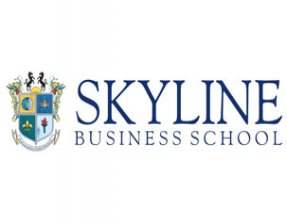SKYLINE EDUCATION INSTITUTE (PVT.) LTD. v. S.L. VASWANI & ANR.
Skyline Education Institute (Pvt.) Ltd. V. S.L. Vaswani & Anr.
2010 (42) PTC 217 (SC)
Full Bench
Facts:
The Appellant, Skyline Education Institute, was a company imparting education and training to individuals in all disciplines of education. One of the Respondents, Satilila Charitable Society, was a society registered with the main object to establish colleges for higher technical education. Respondents were also a part of Skyline group of companies and concerns, such as M/s. Skyline Construction Engineers & Builders Co. and M/s. Skyline Software (P) Ltd.
In 2001, Respondents acquired a large area of land at a cost of Rs. 5.25 crores to establish a multi- disciplinary college. Thereafter, the Respondents obtained permission from All India Council for Technical Education (AICTE) and established an institution named ‘Skyline Institute of Engineering and Technology’. In 2002, they recruited teaching faculty, made admissions in 4 disciplines and started an engineering course. Appellant filed a civil suit against the Respondents seeking injunction against passing off.
Learned Single Judge of the Delhi High Court, as well as the Division Bench refused to restrain the Respondents. The Appellant, aggrieved by the judgment, appealed before the Supreme Court.
Arguments on behalf of the Appellant:
• Appellant averred that Skyline Business School was established in 1997 as a division of Skyline Institute and in a period of one decade it has acquired a substantial reputation and goodwill.
• Skyline Business School has affiliations with the University of Oxford, University of Lincolnshire and Humberside, U.K. and numerous other national and international bodies.
• Though the Appellant’s applications for registration of trademarks ‘Skyline Institute’, ‘Skyline Medallist’, ‘Skyline Business School’ and ‘Skyline Lead Faculty’ submitted by it in 1997 and 1998 are pending, it is nevertheless entitled to an order of injunction against the Respondents by being prior user of the word ‘Skyline’.
Arguments on behalf of the Respondents:
• Respondents pleaded that the Appellant is running his institute illegally without obtaining permission from statutory bodies like AICTE, UGC, etc. It does not have affiliation with any University and the courses are not approved by any competent body.
• The Appellant cannot claim monopoly over the word ‘Skyline’ which is a general word and is being used by as many as 32 companies operating in Delhi, 117 companies operating all over the country and thousands of institutions, companies, firms, etc. worldwide.
• They were already running several companies/firms with the name ‘Skyline’ and there is no possibility of deception and confusion among the students or general public.
Judgment and Observations made by the High Court (Single Judge and Division Bench):
‘Skyline’, being neither an invented nor a specific word, has to be considered a generic word, more particularly when thousands of persons and institutions are using the same as a part of their trading name or business activities. Even a prior user of the name ‘Skyline’ by the Appellant would not confer upon it an exclusive right to use that name to the exclusion of others.
Appellant is not entitled to equitable and discretionary relief by way of temporary injunction as it’s institute is neither approved by AICTE nor affiliated with any university, whereas the Respondents are a recognised body with on-going batches of students.
The Learned Single Judge held that the mere use of the word ‘Skyline’ as a prefix in the name of the two institutes does not create confusion in the mind of the general public and the prospective students. However, the Respondents were directed not to start any new course similar to the courses run by the Appellant, namely, graduate and post-graduate courses in Management, Travel and Tourism and further directed to insert a note in their advertisements that their institute is in no way related to the Appellant.
The Division Bench did not set aside the injunction order passed by the Learned Single Judge, but vacated the same by observing that having come to the conclusion that ‘Skyline’ was a generic word, they could not appreciate as to how an injunction was granted against the Appellant not to start courses in management. Therefore, the limited injunction granted by the Learned Single Judge was vacated.
Judgment and Observations made by the Supreme Court:
The Supreme Court agreed with the findings recorded by the Learned Single Judge and Division Bench on the crucial factors like prima facie case, balance of convenience and equity, but held that the omission on the part of the Division Bench to set aside the order of the Learned Single Judge in it’s entirety called for a corrective action as the Division Bench vacated the limited injunction granted Learned Single Judge.
The Supreme Court observed that the only ground on which the Appellant sought temporary injunction against the Respondents was that the word ‘Skyline’ is a specific/distinct word and being a prior user, it was entitled to seek a restraint against the Respondents. The same was rejected by the Supreme Court by observing that there are 117 companies including computer and software companies and institutions using word `Skyline’ as part of their name/nomenclature and therefore it is not possible to agree with the learned counsel for the Appellant that the Skyline is not a generic word but is a specific word and his client has right to use that word to the exclusion of others.
As per the Supreme Court, the Appellant had failed to make out a case for interference with the discretion exercised by the High Court towards it’s prayer for temporary injunction.
The Appeal was dismissed.
Author: Aadhya, National Law University, Odisha

